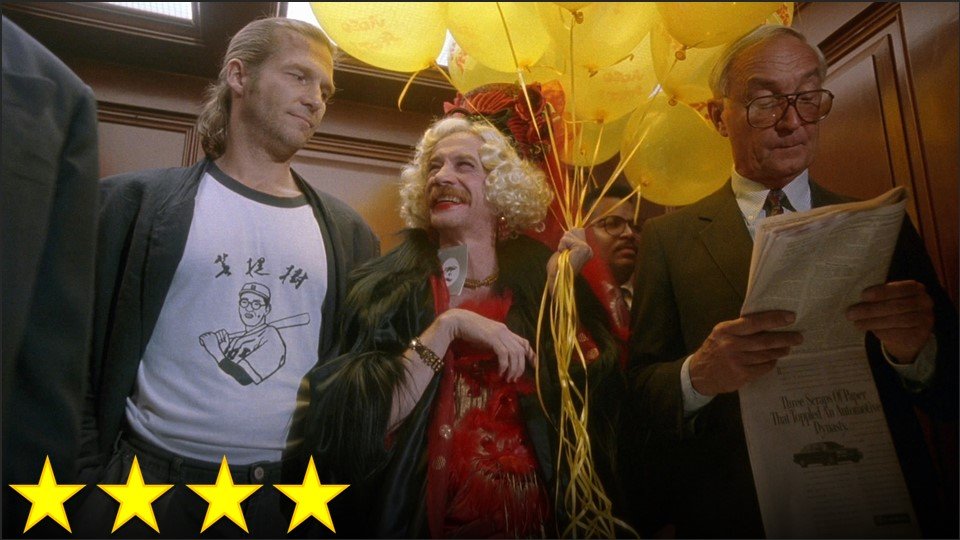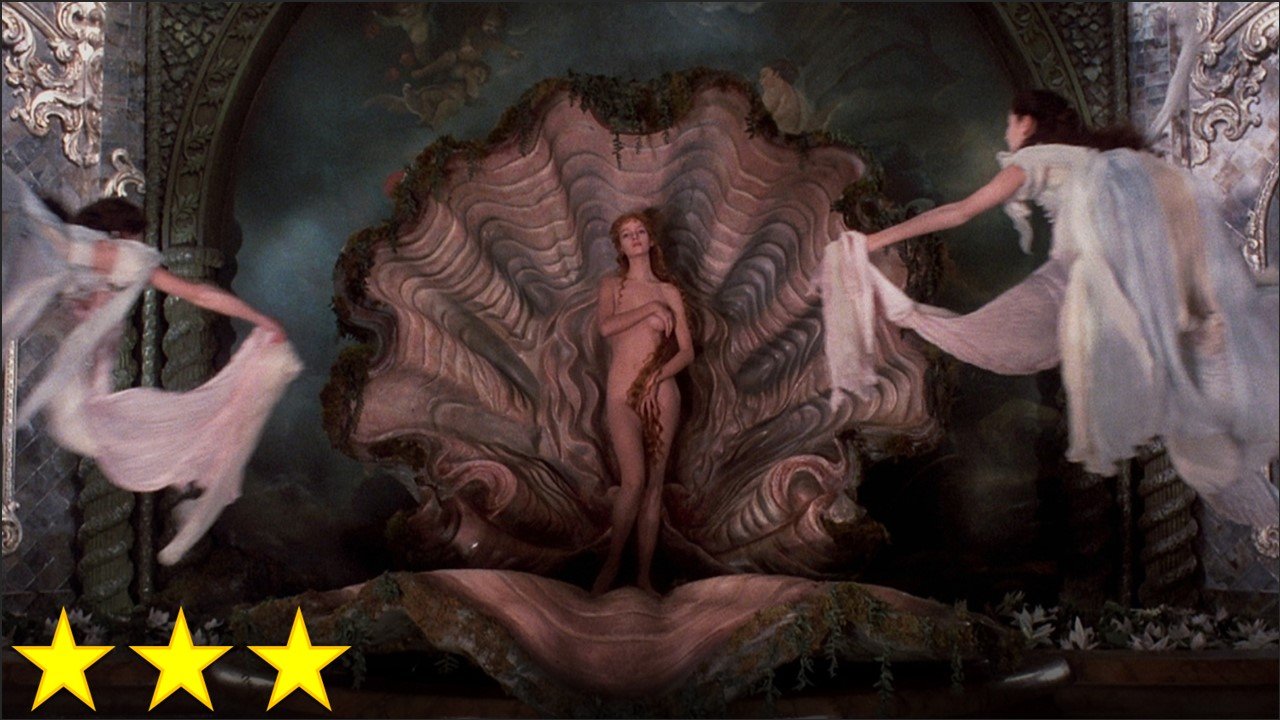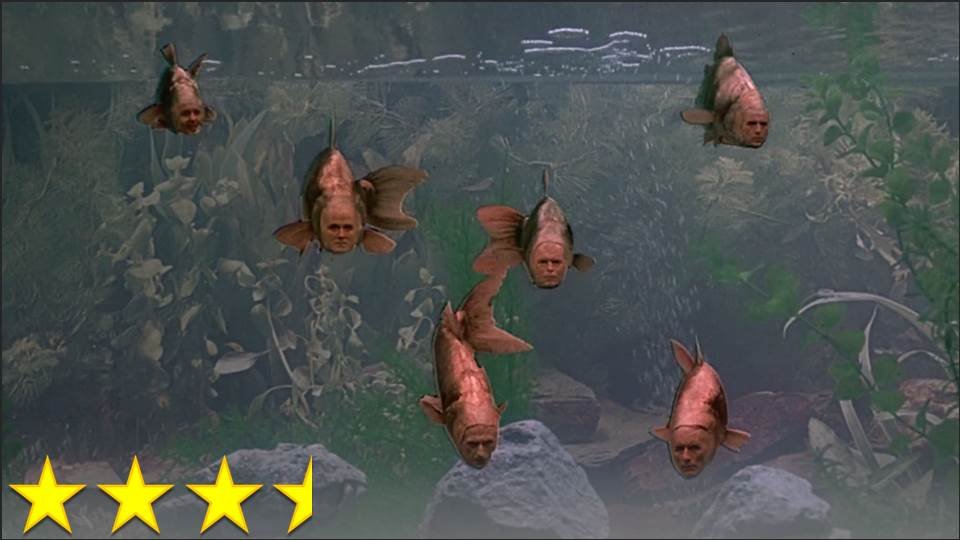While I think it takes a while to really get going, The Fisher King is almost certainly Terry Gilliam’s best film (perhaps excluding his Python work). Continuing his exploration of how Western civilization thinks of insanity, he presents a very strange, but charming, romantic comedy about people who are truly not right in the head. This goes beyond the usual romantic comedy about people who do crazy things for love, and beyond Silver Linings Playbook. Robin Williams’ character is purely mad – plain and simple – and Gilliam is able to use this to create two very different kinds of effects.
The first effect is that of childlike naivete. We see a man who wears kiddish pajamas and loves his toys, but he’s not a man-boy. He just looks at the world a little differently, and he dares to try things most of us wouldn’t. He believes in fairy-tales and in fairies, and yet he very much understands sex. He doesn’t judge people for their craziness – he usually just doesn’t see it; he simply sees people who ought to join him in singing some fun old standards like “Lydia the Tattooed Lady.” The way that this benefits the movie the most is in what it allows Gilliam to do as a director and cinematographer: when we see the world through Parry’s eyes, we see a red knight in fiery light riding towards us on a frightening steed and a hundred busy people become a ballroom of dancers the moment his crush appears. While I can’t say I’m in love with everything about the movie – by no means – I have to say that it’s very charming (and in all the right ways).
The other side of this, however, is the film’s darkness. The movie largely takes place in a bad part of New York, where Jack Lucas (Jeff Bridges) is selling pornos in a rundown movie rental store. When an insane man enters his life, it only makes the lives of Jack and Anne (Mercedes Ruehl) even more hellish, which leads to some of the best drama I’ve seen in any film. Much of the drama comes from Ruehl’s performance as Anne, which rightly won an Academy Award, and which made me empathize with this character in a way I never thought I could. Even with the movie’s tragic terrorist shooting, suicide attempts, and violent beatings, it’s still the relationship between Jack and Anne that’s the most intense part of the movie, and I didn’t really like either of them at the start. By the end of the movie, while I have no intention of revealing how the story ends in this review, Gilliam makes us love the last people on earth one would think we could love, and that’s surely one of the greatest accomplishments of any artist in history.




